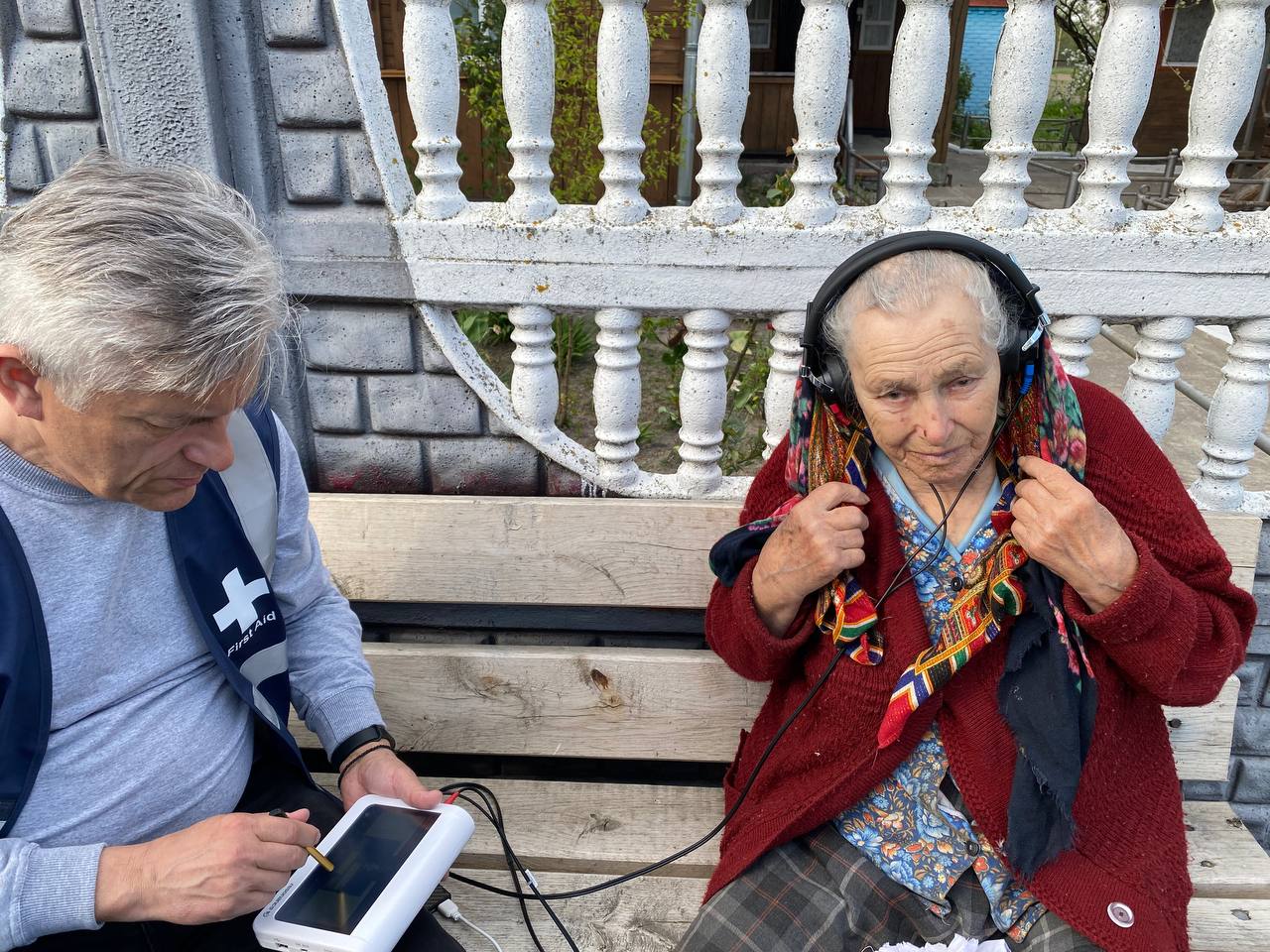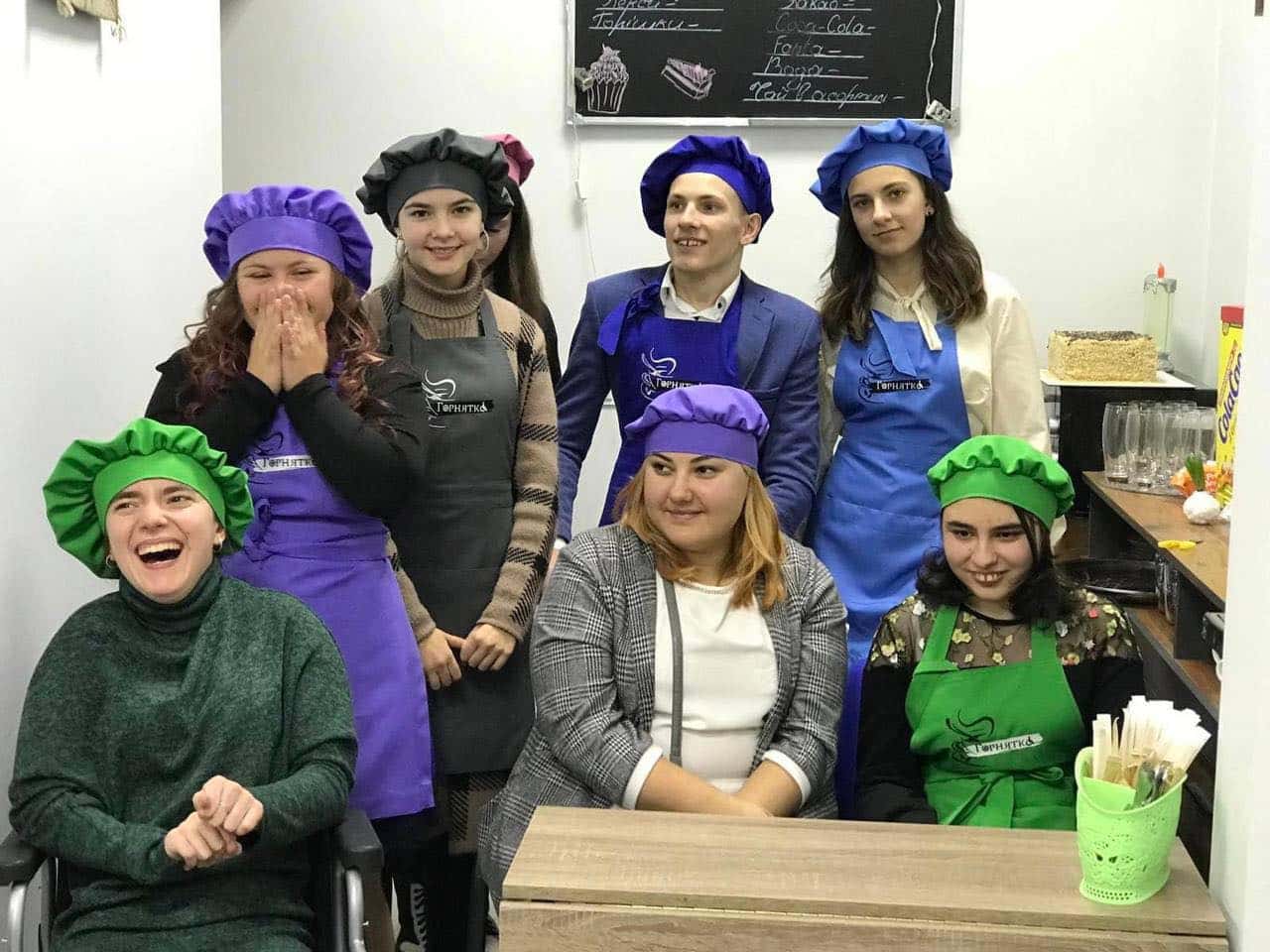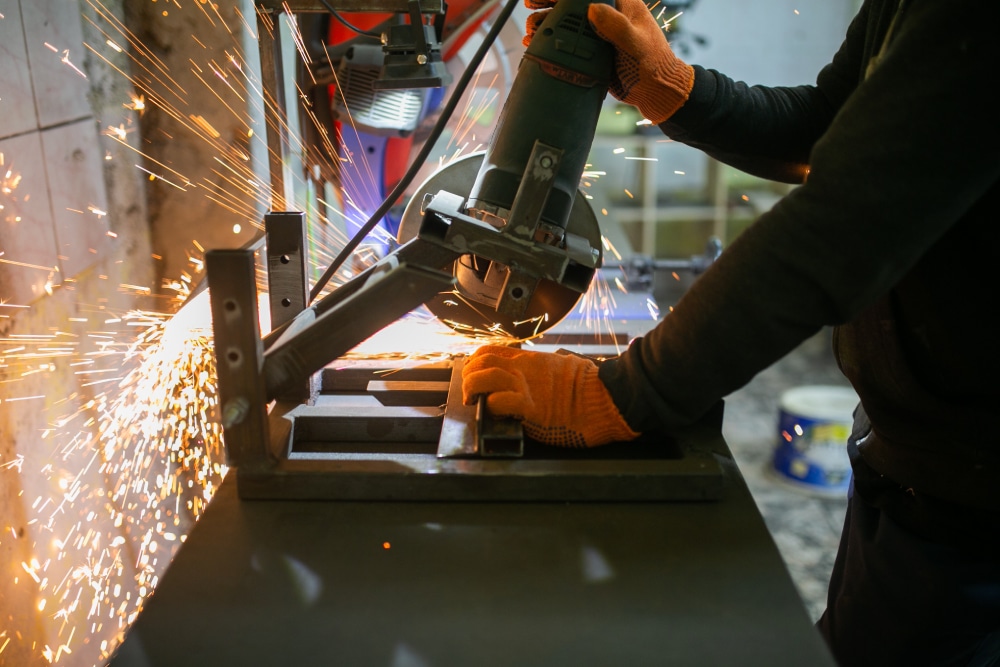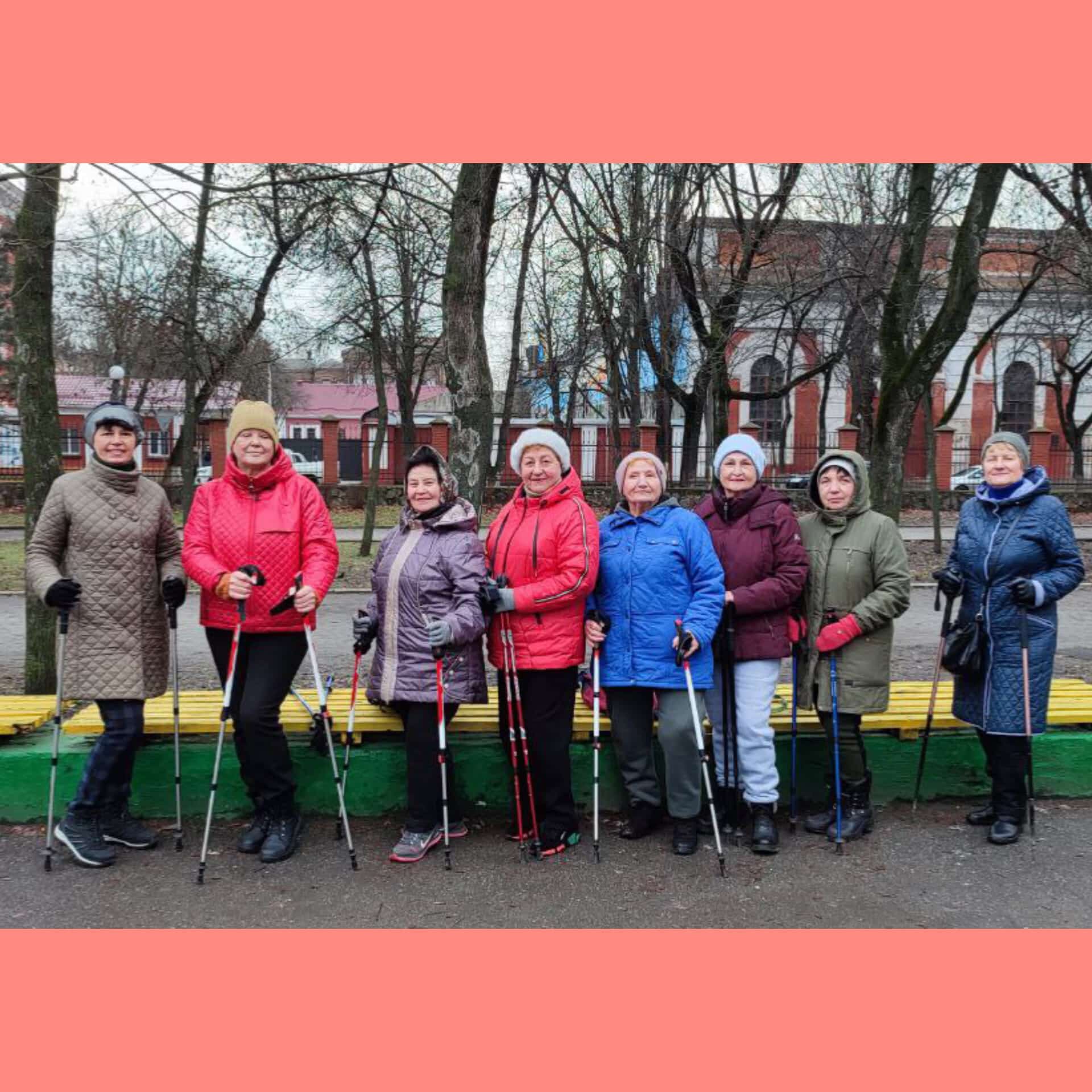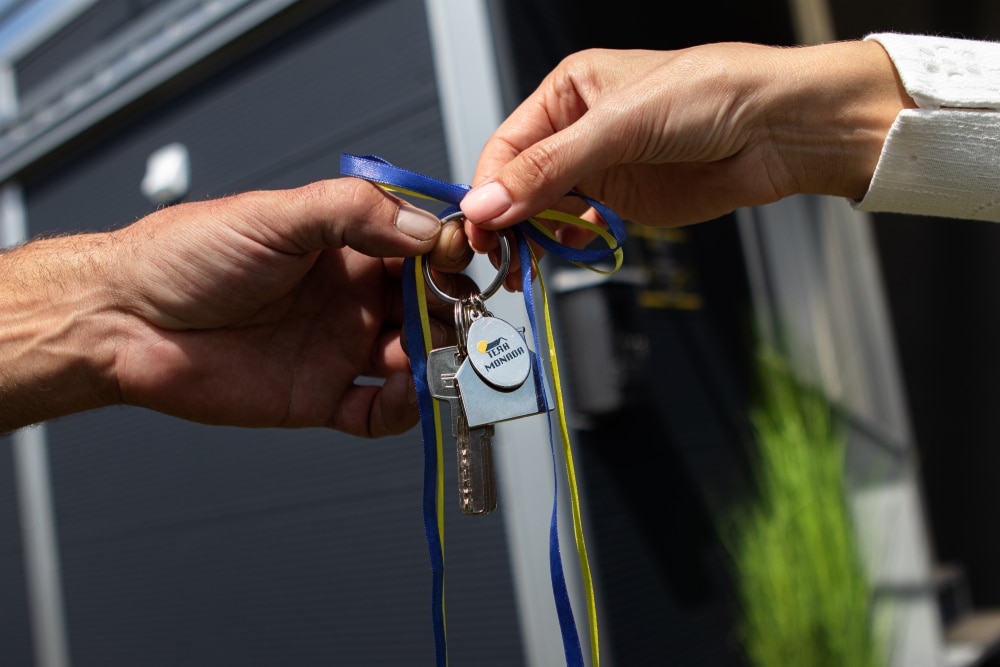De-occupation of Ukrainian cities and towns always evokes several conflicting emotions. Happiness, joy, pride, relief, and gratitude, but there is also grief, sorrow, fear, and despair. People in the de-occupied territories require help and support. Today we spoke with Lyudmila Pyshna, a co-founder of the NGO “Vidchui”, about the project and how they visit people to check their hearing and much more.
Preparation for school and rehabilitation in the children’s center
The story of the foundation of this public organization is very special to Lyudmila as her husband, Andrii Pyshnyi, was losing his hearing when he was 34. At that moment, he already had an education, and a job, while there are people who can’t hear from birth. How do they find their place in this world?
After some time of searching for necessary assistance, a couple decided to create their organization that would be working on helping with adaptation for people who have hearing problems, as well as helping with rehabilitation and information campaigns explaining how widespread hearing issues are and how important it is to check your hearing regularly.
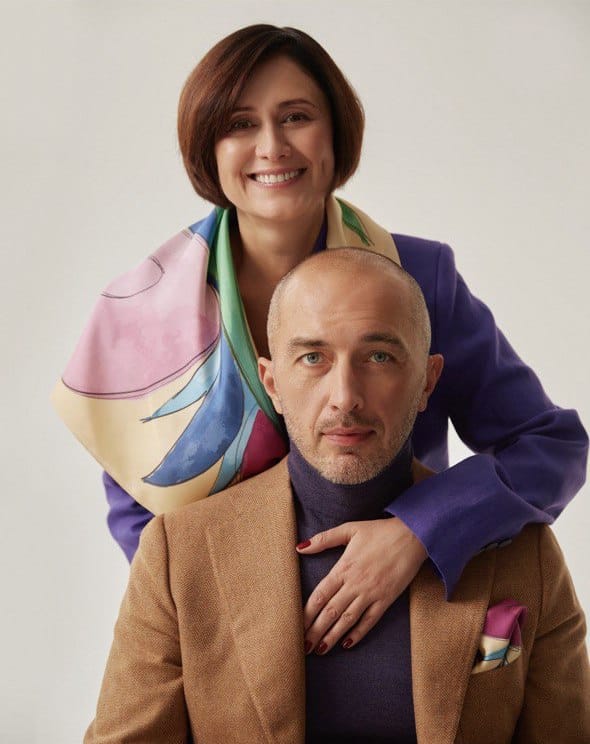
Initially, we only wanted to spread the information, but then we started receiving requests from mothers with their children, and they had no idea where else they would go. That was how NGO “Vidchui” started caring of children with hearing disabilities.
«The core of the organization is our children’s center. That’s where children undergo their rehabilitation and preparation for school. We offer general group lessons as well as individual lessons. We also offer junior and teenage clubs where their members can do some sports, okay some music and learn computers. That is the main core that motivates us to keep working,» says Lyudmila Pyshna.
Every week nearly 130-150 children visit the center to attend the lessons. Little kids come for rehabilitation and lessons after cochlear implants (hearing aid surgery), and when they turn 4, they can start preparation for school here. But sometimes, even parents with newly born kids don’t receive these consultations. Even when a baby is still so tiny and young, their hearing may already start deteriorating, so their families need some advice. Lyudmila says that some center visitors would attend lessons for a year, while others may need to attend even longer, but every child who attended this center felt more comfortable adapting to the new school environment.
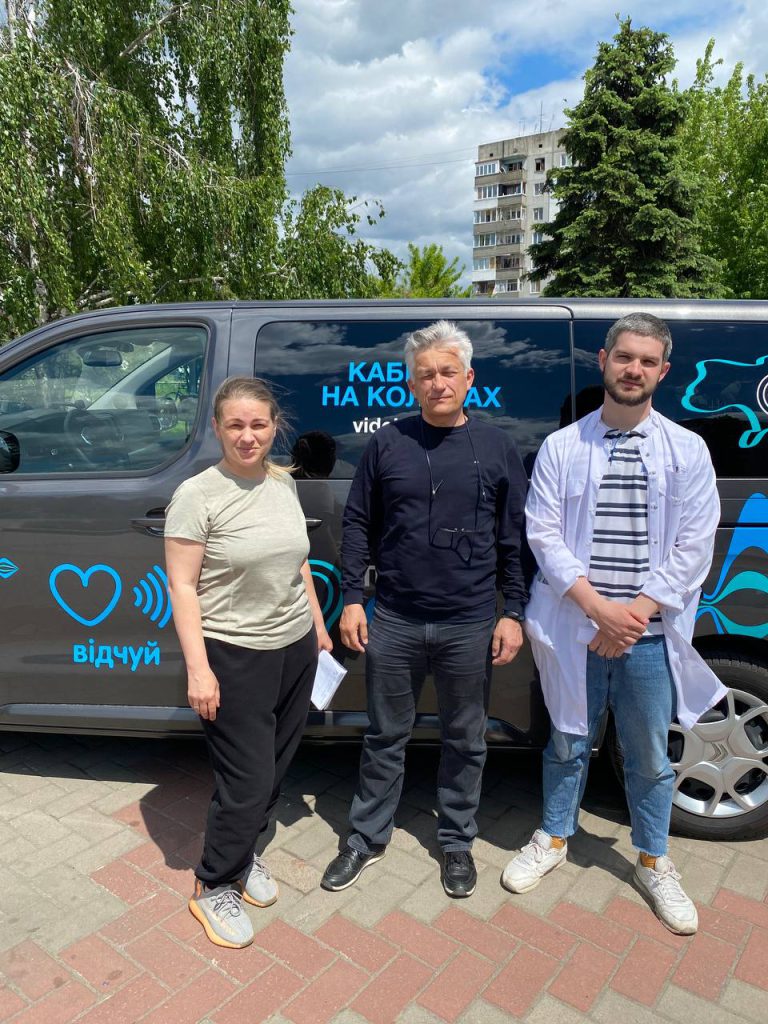
The children’s center activities didn’t stop after the full-scale Russian military invasion. Many children and their parents have traveled abroad, but they continue learning with us online. NGO “Vidchui” was ready for such a format as they were familiar with remote study during the pandemic times. Lyudmyla explained that it’s impossible to interrupt rehabilitation as all the skills that have been gained during this period will be lost.
Since September, offline lessons have been back, as many children returned to Kyiv and were ready to continue their school preparation and rehabilitation.
Cabinet on wheels: to check the hearing of the entire country
In 2020 the team launched an interesting project that is ongoing until now. «Cabinet on Wheels» was designed and prepared before the pandemic, with everything purchased in advance, including the vehicle and all the necessary equipment.
«We found out about the number — 60% of cases of total hearing loss could have been prevented if they were diagnosed on time. That’s why preventative measures and popularization of this issue are extremely important,» says Lyudmyla.
But they got on their Ukrainian journey later than planned, following all the quarantine requirements. They’ve managed to visit 30 cities in Ukraine like that. The team was able to draw people’s attention to the hearing loss issue and the importance of preventative doctor’s checkups. Lyudmyla says that in 2020 they launched such a test project and were able to see the scope of their further work.
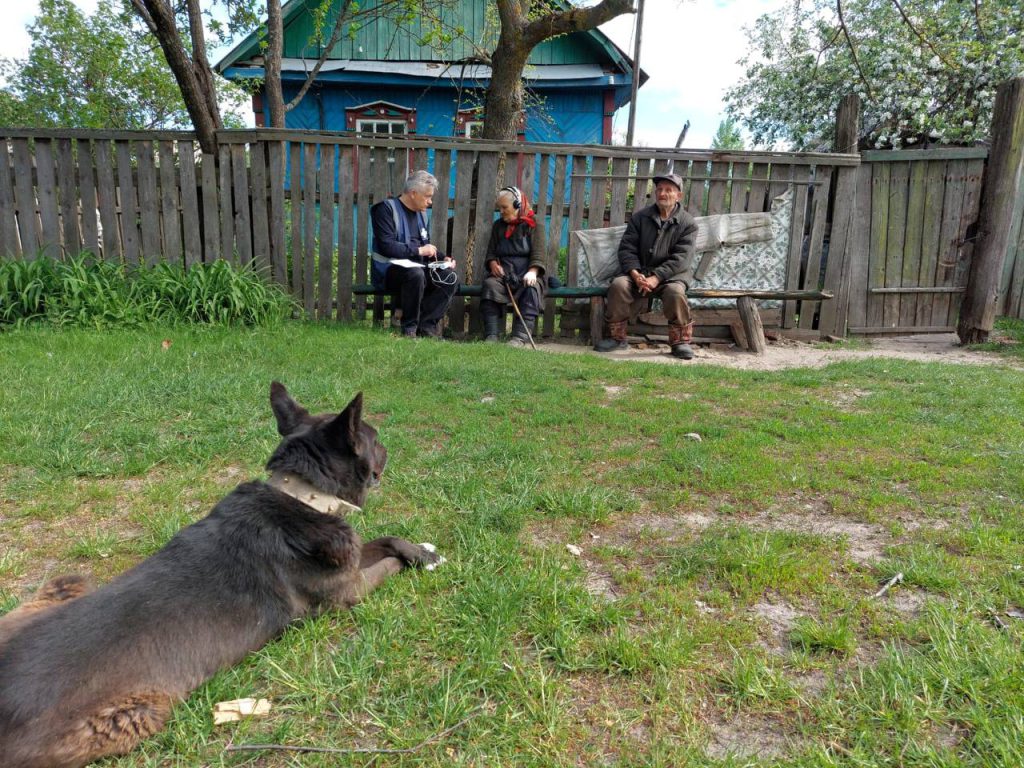
«We understand that this isn’t a cure and that we won’t be able to check everyone’s hearing. But even those people who saw the «Cabinet on Wheels» vehicle in the middle of their city started taking their hearing more seriously. Hearing checkup? Of course, it means we need to pay additional attention to that once I saw a vehicle where mammalogists would conduct medical checkups too. Sure, I didn’t get checked that time, but I noticed it, and I noticed that it was important. That’s why our project is also an educational one,» says Lyudmyla Pyshna.
After the trip, we noticed hearing quality decrease among the youth. Our team went to visit Kyiv high schools and universities as well and check the students. Unfortunately, the results weren’t that positive, as a hearing quality decrease was found in a third of the examined students.
During the war, the project continued to exist and received an addition. NGO “Vidchui” team started thinking that people who are currently living on the territories occupied by the Russian forces still need to take care of their health as well, especially since they need to sit in cold and damp basements for a prolonged time and face stress and anxiety due to the war every day. Thus, in May, after the Kyiv region was completely liberated, «Cabinet on Wheels» decided to check the hearing of the residents and deliver humanitarian aid to them.
In 2,5 months, the team visited 74 towns and villages in the region and checked nearly 1,500 people’s hearing. The project’s military model has some adjustments, as now they don’t just check people’s hearing but also help treat the issues. NGO “Vidchui” team became stronger recently, as the team was joined by a doctor from «Aurora» medical center, so now the canine can also prescribe medication, and all the necessary medication is usually brought by the team.
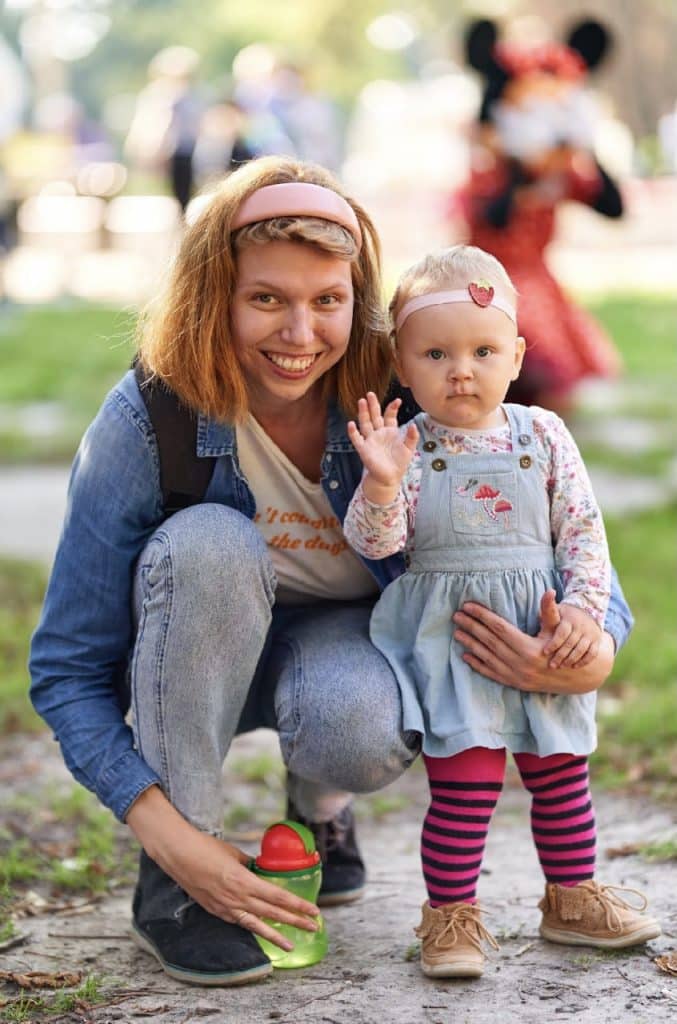
«If during the checkup we discover that someone has a serious issue, for example, otitis or inflammation, our doctor can prescribe and administer medicine right away. There were still no pharmacies or doctors on the recently de-occupied territories back in May. We intended to focus the most on those towns and villages with the least amount of help. For example, we didn’t really work a lot in the Vyshgorodsky district, as most of the essential services in Vyshgorod worked. So that was our main principle, as we wanted to first of all help those who were still under the occupation and couldn’t see a doctor in the nearest future,» explains Lyudmyla.
Nearly a third of all people the NGO “Vidchui” team examined needed hearing aid, and the team decided to help with that. Today, 52 hearing aids were delivered to those who survived Russian occupation in the Kyiv region. Our oldest patient at the moment, a 94-year-old lady, has also received her hearing aid, and now she will take care of her health. The team’s youngest patient was an 8-year-old girl. The child didn’t have any hearing issues before 24 February, but already in March, the family started noticing some changes. The doctor diagnosed the little girl with hearing loss.
«Cabinet on Wheels» visited a few villages daily, usually up to eight. Local authorities would often notify people about it and gather them in a designated spot. For example, the team had to visit Borodyanka twice, as the numbers of people willing to check their hearing were above the daily capacity. For the first time, 150 people checked their hearing during the day, while the demand was even higher.
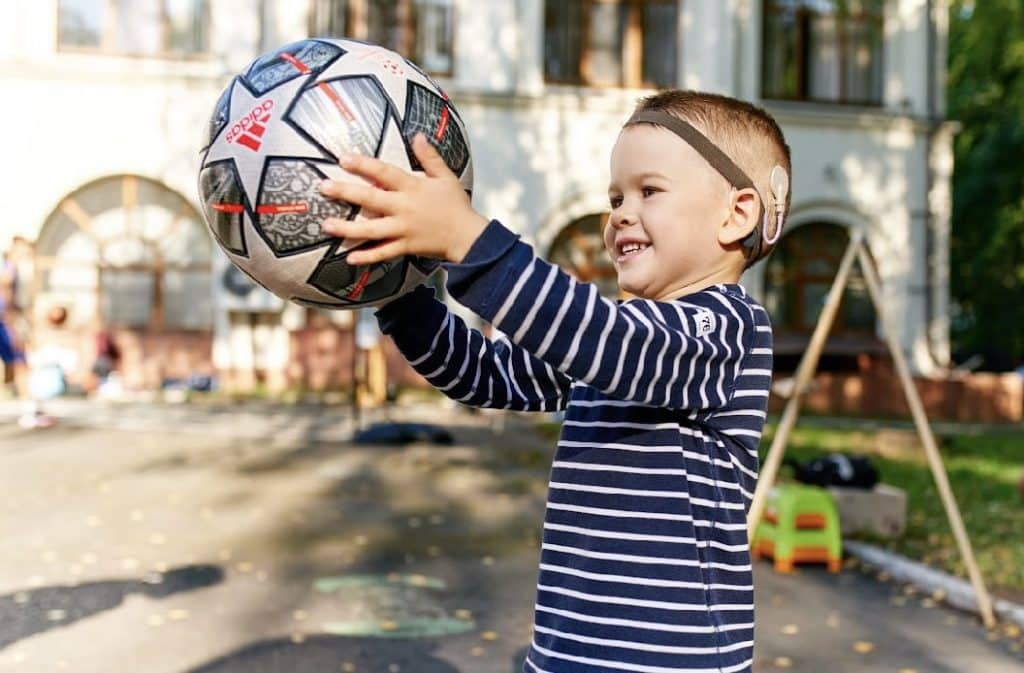
«We would also provide people with some psychological help as well, we can say,» says Lyudmyla Pyshna. «Because people really needed support. Some people were even scared to approach, while others cried and wanted to talk, or simply needed some hugs or to hold someone’s hand.»
The next destination point for the team is the Chernihiv region, as residents there also need support and help.
Helping Ukrainian Armed Forces: hearing loss at war
Although the NGO “Vidchui” focuses mainly on rehabilitating children with hearing loss since 2014, the center had an opportunity to be helping some adult patients as well. Lyudmyla says that since the beginning of the war, a lot of adult patients reached out to their center in need of help, so the team has had an opportunity to develop rehabilitation methods and guidelines for adult patients. They were mostly singular cases then, but now the organist stick is working on a big project to cover the financial needs of the soldiers who lose hearing at war. One part of it consists of rehabilitation, while another one is dedicated to preventative measures.
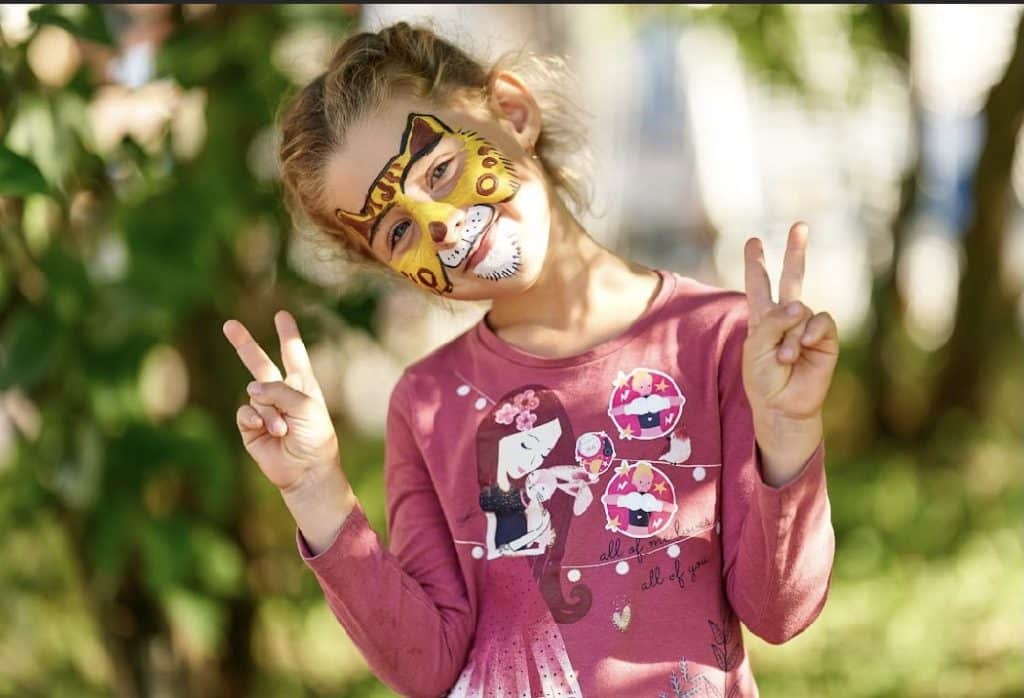
«There is a sounds scale based on decibels numbers that are safe for human hearing. 85 decibels can still be considered safe. However, this indicator is different on the frontlines, as loud sounds of 140-220 decibels regularly affect the soldiers’ hearing. This is a very tight and constant hearing load. Of course, it is recommended to cover the ears with hands or cloth, but some professional items can be used for these purposes, such as earplugs. And we are not talking about disposable earplugs; we are talking about something of a much higher quality. We’ve found earplugs that allow you to still hear the conversations but the technologies can cut and eliminate all the loud and abrupt sounds. These items have already been tested in air defense systems soldiers, and the soldiers said their ears didn’t hurt after the entire day of work using these earplugs,» says Lyudmyla Pyshna.
That’s why the «Feel» project also plans to continue raising funds for purchasing headphones, earplugs, and other means of hearing protection for soldiers. While the project is in progress, the team is looking for and testing new devices for different purposes. For example, artillery soldiers need heavier, more powerful headphones, while infantry soldiers need different types of headphones.
Useful tips: How to notice hearing deterioration
Lyudmyla says that it is quite difficult to detect your own hearing issues, but our family and friends can help with that.
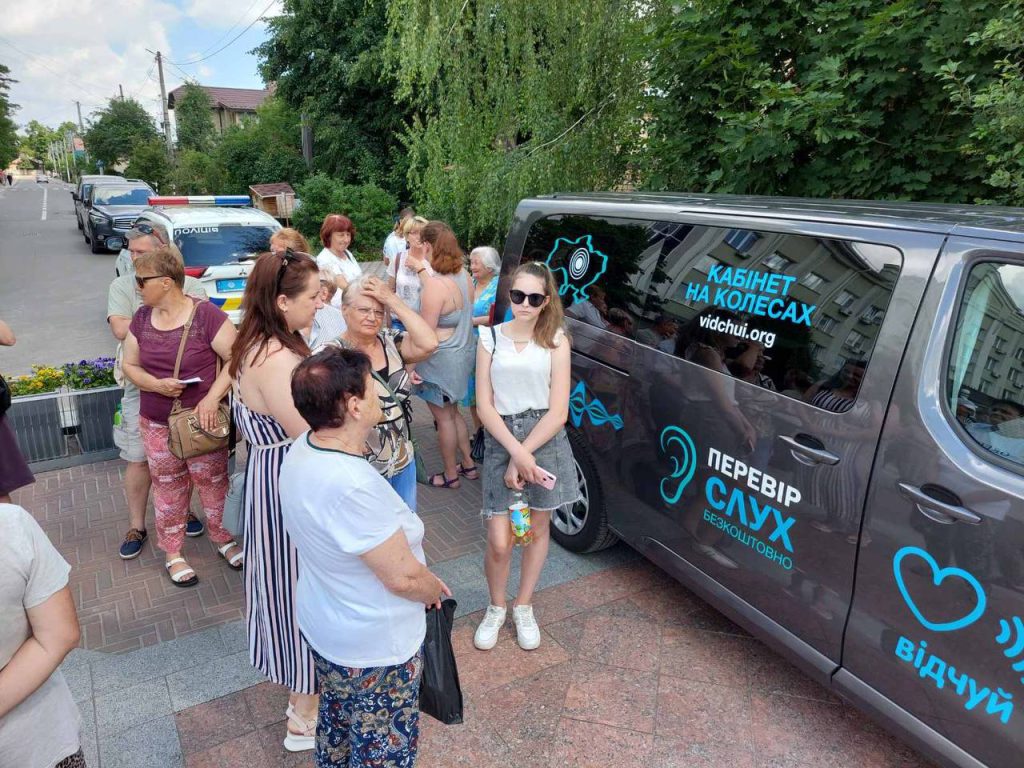
«Often those who are with us all the time are the first ones to notice any changes in hearing, for example, when a person starts playing louder music, TV, asks a few times or turns to you with their ear that hears better. A lot of people after 50 had otitis as kids and probably didn’t treat it properly, and later on, it caused hearing loss,» says Lyudmyla.
She also suggests not listening to loud music in your headphones, and even if you prefer loud music in your ears, at least take some breaks. Lyudmyla assures you that hearing loss issues may be closer than you think.
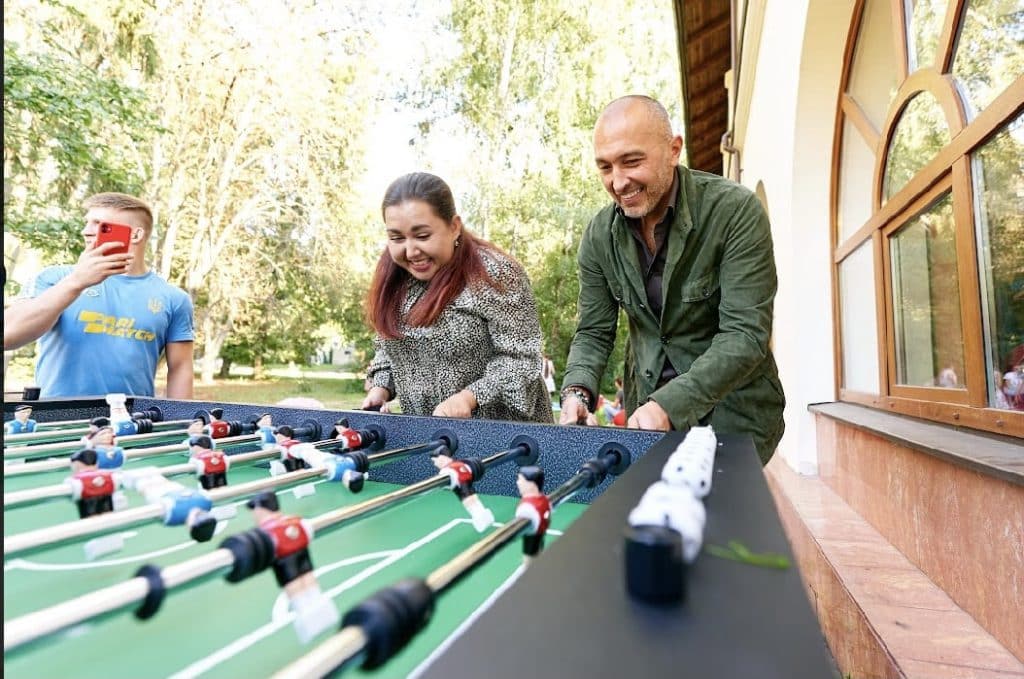
«There is a stereotype,» she says, «that hearing issues are congenital, but this is not true. One can lose hearing due to loud working conditions (for example, at the factory), due to traumas, or after certain diseases, such as flu or otitis. Hearing deterioration is possible at any age. I know that people are often shy about hearing aid. Teenagers often take their hearing aid off, which makes their treatment harder and longer. I remember the times when people were ashamed of wearing glasses, and now glasses are among the most popular accessories.»

